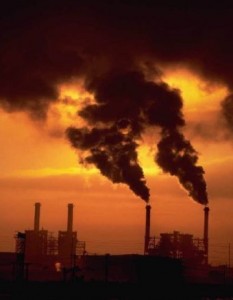An interesting piece on the Time website by environmental reporter Bryan Walash looks asks whether the media’s patchy coverage of the climate change issue is seeing the story of the century going unreported.
 As Walsh points out, few stories run so broad – into politics, economics, science, even religion.
As Walsh points out, few stories run so broad – into politics, economics, science, even religion.
Says Walsh: “The sheer complexity means there’s always something to write, blog or podcast about – as my editor likes to remind me. Frequently.
“But that complexity poses a unique challenge for the media, one that in its increasingly decimated state it may be ill-equipped to meet, as Eric Pooley – the former editor of Fortune and a Time contributor – argues in a recent paper for Harvard University’s Joan Shorenstein Center.
Eric Pooley’s discussion paper makes for interesting reading. Pooley writes: “A vigorous press ought to be central to both climate policy and climate politics, but this is not a time of media vigor. The American press has been hit by a meteor of its own, a secular revenue decline that is driving huge reductions in newsroom staff and making disciplined climate coverage less likely just as it becomes most crucial. So it is well worth asking: How is the press do-ing on the climate solutions story?”
An analysis of media coverage of climate change economics here is likely to yield similarly disapponiting results. Commentary on the emissions trading scheme in the mainstream media has largely emitted the science supposedly underpinning the scheme. The reason, we are told, is that the “science is settled”. Well there may be consensus among scientists that humans are partly responsible for global warming, but that seems like no reason to reduce the climate change debate to one of economics and politics. We are constantly learning more about climate change which should inform our policy and economic decisions we make.
Ironically, this analysis of coverage of climate change by the mainstream media, written by New York-based journalist Jim Gordon in 1999, is just as relevant a decade on:
“The reality of global warming and climate change are setting in, but major U.S. media outlets have thus far failed to examine the implications of what will be perhaps the most important issue of coming decades.
“It is not that no coverage occurs. But it is fragmented and confusing. Media cite bits and pieces of the growing array of evidence demonstrating climate change is occurring. Right alongside, they may print the opinions of scientists on the payroll of fossil fuel interests who debunk the idea of climate change, asserting that global warming is not occurring or even that it is good for life on Earth.”
So are we missing the story of the century? You are probably used to seeing stories about climate change in the newspapers and on TV. But how good a job is this coverage doing at laying out the problems we face and the options we have to attempt to address them?
I know you posted this a while back, but I’ve just read Eric Pooley’s paper and wandered across your blog.
I think of more relevance to NZ in this (although you make good points about the ETS coverage) is the “he said she said” journalism which rules the NZ media.
I’ve just come away from a typical conversation with a radio journalist talking about whether they wanted to get an inside view of the international climate negotiations. But they were more interested in such a thing if they could get Roger Douglas on the other end so we could have a “debate”… What, I asked, does Roger Douglas know about the international climate negotiations? Not much, I was told, but it makes good radio.
The question remains: does it really serve the public?
As Pooley notes (quoting EDF) “Notions of journalistic objectivity…shouldn’t prevent reporters from recognizing consensus and making judgments based on the best available evidence. Instead, they should help the public decide who is right and who is wrong in a debate where the stakes-our economy, our planet-could not be higher.”